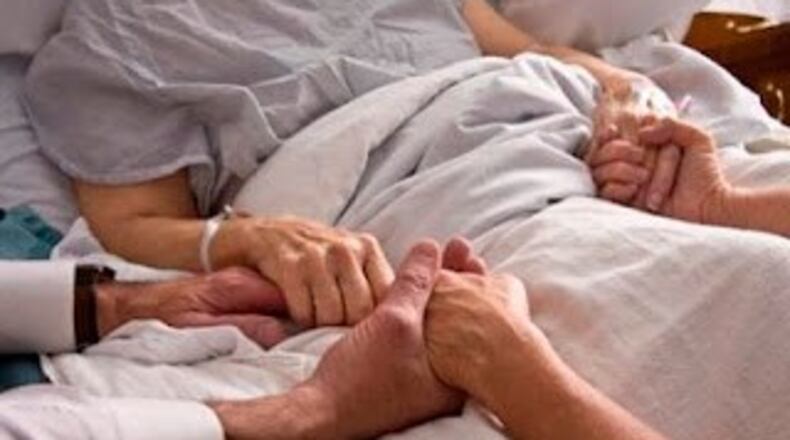Another hospice serving Georgia patients has agreed to a multi-million-dollar settlement as a result of a lawsuit filed by whistleblowers.
In the latest case, Compassionate Care Hospice Group agreed to pay $2.4 million to resolve allegations that its subsidiary, Compassionate Care of Atlanta, paid kickbacks to five physicians to get them to refer patients and certify them as eligible for hospice services. The company then billed Medicare and Medicaid for those patients, the lawsuit alleged.
The Justice Department announced the settlement Thursday. "Kickbacks should never play a role in medical decision-making," said U.S. Attorney John Horn in a Thursday news release announcing the settlement.
But in settling the case, brought by former employees Cathy Morris and Josie King and later joined by the federal government, the company did not admit liability.
The news release didn't identify the five physicians who got the kickbacks.
Hospices with Georgia locations have been targets of a string of lawsuits in recent years. Among them:
- In 2015, Guardian Hospice, which provides services in the Atlanta area, agreed to pay $3 million to resolve allegations it billed taxpayers for patients who were not terminally ill.
- In 2014, Alabama-based Hospice Compassus, with facilities in the Atlanta area, agreed to pay $3.9 million to settle claims that it billed the federal government for patients who were not terminally ill. Also that year, Serenity Hospice of Dublin, whose locations include Peachtree City, agreed to pay more than a half-million dollars after it was accused of submitting claims for ineligible patients.
- In 2013, America Hospice Management, which had locations in Atlanta, Cumming, Snellville and McDonough, agreed to pay $12 million to resolve allegations that its Arizona unit made false claims to Medicare for ineligible services. The company later filed for bankruptcy.
- In 2012, Altus Healthcare & Hospice of Atlanta, known as AAH Hospice, agreed to pay $555,572 to resolve allegations it submitted false or fraudulent claims to Medicare.
- In 2009, Southern Care, which had locations in Georgia and 14 other states, agreed to pay $24.7 million after the government accused it of charging Medicare for patients who didn't qualify.
Potentially the largest hospice case, alleging as much as $200 million in false claims, is pending before the 11th Circuit Court of Appeals here. That case involves AseraCare, which operates hospices in several states, including Georgia.
Last year, a federal judge in Alabama tossed out a whistleblower lawsuit against AseraCare. The company had argued that physicians could disagree about eligibility for end-of-life care, but that those disagreements in clinical judgment aren't enough to prove false claims.
The Department of Justice appealed that ruling. The 11th Circuit heard arguments in the case in March. It hasn't yet issued a decision in the case, which has drawn attention throughout the hospice industry.
The Medicare hospice benefit is only for those diagnosed with a terminal illness and a life expectancy of six months or less.
The AJC is interested in hearing from those who have had family members in hospice care in Georgia. Email us at doctors@ajc.com
About the Author
The Latest
Featured



